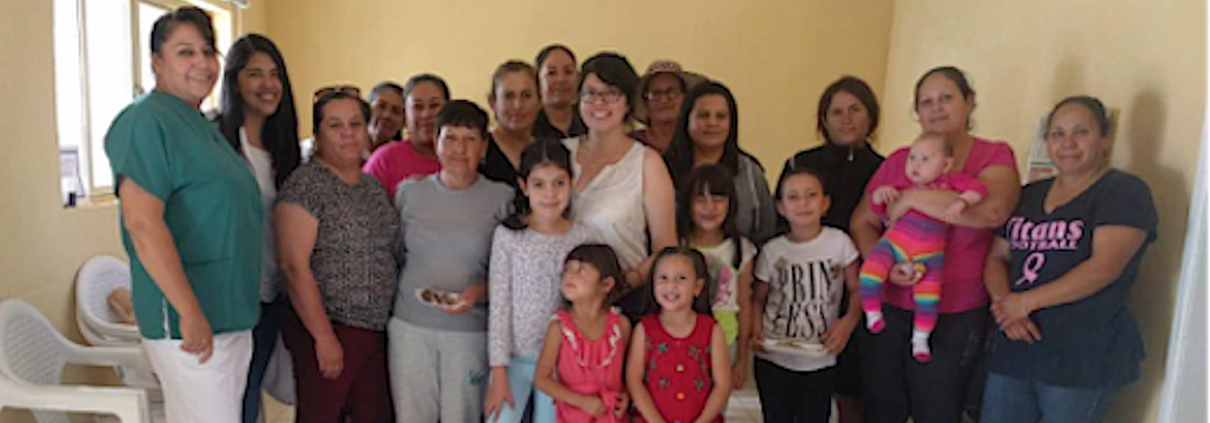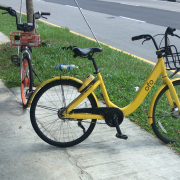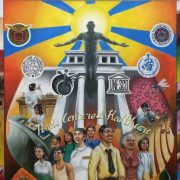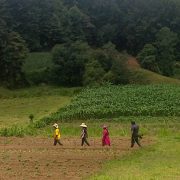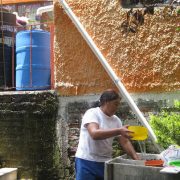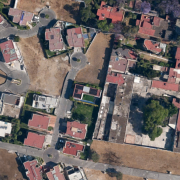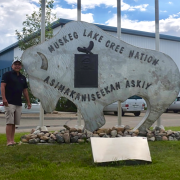Empowering Women in Rural Communities
By Yesenia Garcia, MSW ’19
This summer I had the amazing opportunity to be an intern with IMSS (Instituto Mexicano de Servicios Sociales), which is the social services department in Mexico. More specifically, I interned for the IMSS in the state of Zacatecas and worked with two different rural communities. These vibrant communities are one hour away from the nearest town and one and a half hours from the main city. During my stay in Zacatecas, I created a seven-week program for women in rural communities called “Rompiendo Los Ciclos ” (Breaking the Cycles), with the objective of educating women on the many traumas caused by cultural misconceptions that are passed down generations. The themes explored in the program included intergenerational trauma, domestic violence, mental health, hitting as a form of discipline, gender equality, self-esteem, and drugs and alcoholism. The overarching goal was to create awareness of how these themes affect our mental health and to empower women to reach their mental well-being. By providing women with educational information and support on the different social issues, they were empowered to take account of their lives. Another objective was to provide educational information to the women and create awareness of these social issues. Also, I provided personalized individual and family counseling to the families that sought more help.
 Growing up in Mexico in a rural community, I had first-hand experience of the barriers and challenges that people face when seeking mental health resources. Due to these experiences, I became passionate about increasing mental health awareness and resources for rural communities. Understandably, there is a great stigma in seeking mental health services, and individuals would rather go to a local doctor instead. When I first reached out to IMSS and told them about my interest in mental health and rural communities, they were excited to support my project. They mentioned they were working on creating a small campaign to promote mental well-being in the city, and it would be great to see what the outcomes of my project would be in the rural communities. Moreover, the doctor in charge of the communities shared with me that many individuals, especially women, sought medication for their “nervios,” which is what they would often call anxiety, depression or panic attacks. This was largely due to the high prevalence of domestic violence, alcoholism, unemployment, and poverty in the community. By empowering the women, providing knowledge, and teaching them coping skills, we could possibly lower the number of women seeking medication for their “nervios” and improve their mental health. This was a great opportunity to provide support to the community by providing knowledge and empowerment as a way to create change at the individual/community level.
Growing up in Mexico in a rural community, I had first-hand experience of the barriers and challenges that people face when seeking mental health resources. Due to these experiences, I became passionate about increasing mental health awareness and resources for rural communities. Understandably, there is a great stigma in seeking mental health services, and individuals would rather go to a local doctor instead. When I first reached out to IMSS and told them about my interest in mental health and rural communities, they were excited to support my project. They mentioned they were working on creating a small campaign to promote mental well-being in the city, and it would be great to see what the outcomes of my project would be in the rural communities. Moreover, the doctor in charge of the communities shared with me that many individuals, especially women, sought medication for their “nervios,” which is what they would often call anxiety, depression or panic attacks. This was largely due to the high prevalence of domestic violence, alcoholism, unemployment, and poverty in the community. By empowering the women, providing knowledge, and teaching them coping skills, we could possibly lower the number of women seeking medication for their “nervios” and improve their mental health. This was a great opportunity to provide support to the community by providing knowledge and empowerment as a way to create change at the individual/community level.
My time in Mexico allowed me to immerse myself in the culture and life of these two rural communities. I was honored to have the community members share a little part of their lives with me and open their homes to me. I learned of the barriers and challenges they face, as well as the many treasures and stories they have to share. Even though my time with them was limited I only hope to have had a positive impact in the community. My time there helped me to further understand the lives and struggles of the people. This experience ignited my love for working with rural communities and I look forward to continuing working to understand how to de-stigmatize mental health in rural communities and to create a sustainable mental health model for these communities. Lastly, I would like to thank the Global Public Affairs team for making this trip possible and for always being supportive.

